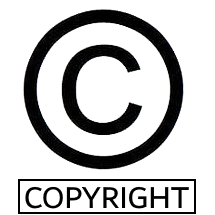Benefits Of Oral Minoxidil and How To Use It
Table of Contents
Oral minoxidil was approved as a prescription medication for severe hypertension before topical minoxidil. Minoxidil pills frequently had an unexpected side effect: excessive hair growth. According to the American Academy of Dermatology Association (AAD), drug researchers quickly recognized the potential of this side effect and modified minoxidil as a therapy for hair loss.
Even though most people are more familiar with it as a scalp foam or tonic, minoxidil is a beneficial hair treatment when taken orally. Minoxidil can be used orally as a tablet in certain situations, and Dermatologists are increasingly seeing this as an effective approach to treating problems with hair growth.
Oral Minoxidil For Hypertension:
Minoxidil is a direct vasodilator that was developed and approved by FDA to treat hypertension. It can lower blood pressure in most people with resistant hypertension where multidrug treatment has failed. The efficacy of minoxidil may have limits due to an increase in pulse rate and sodium (and water) retention. As a result, minoxidil is taken with a diuretic and a medication that can control the pulse rate, such as a beta blocker or a combination alpha-beta blocker. If left untreated, minoxidil-induced tachycardia might aggravate myocardial ischemia and lead to left ventricular hypertrophy.
Minoxidil has an unpleasant side effect of hypertrichosis, which may limit its use, particularly among women. Minoxidil usage is rarely linked to the sporadic onset of pericardial effusion. If a patient’s hypertension is severe enough to justify minoxidil medication, the patient’s care should be coordinated by a hypertension specialist. Given the availability of effective treatments with fewer adverse effects, the use of this medication should be reduced. However, minoxidil has a role in the treatment of resistant hypertension, particularly in patients with severe renal disease.
Oral Minoxidil For Hair Loss:
Oral Minoxidil may be used for hair loss:
- If topical Minoxidil preparations produce a rash, irritation, or allergy
- After 6 months of use, there is no benefit from topical Minoxidil.
- Topical Minoxidil induces poor hair texture – Topical Minoxidil can sometimes cause dry, knotted hair that is vulnerable to breaking.
- Other issues arise when using topical Minoxidil, including compliance issues.
Is Oral Minoxidil Effective For Hair Loss?
Researchers have done several studies on oral Minoxidil for hair loss. Overall, they discovered that oral Minoxidil is effective for treating hair loss, especially in patients having male- or female-pattern baldness, commonly known as androgenetic alopecia. In one study of 26 women, oral minoxidil was compared to topical minoxidil. The study found that after six months of treatment, both groups had similar outcomes.
Because the primary forms of hair loss treatment include topical minoxidil and oral finasteride, there has been little research on the efficacy of oral minoxidil in treating hair loss. But, the available evidence indicates that it works for most people.
While researchers have stated that a larger-scale study is required to better understand dose and safety, oral minoxidil treatment may be effective for various reasons of hair loss. These may include telogen effluvium, loose anagen hair syndrome, monilethrix, alopecia areata, and hair loss from cancer therapy.
Oral Minoxidil Dosage:
Oral minoxidil (brand name Loniten) is a prescription medicine available in 2.5 mg, 5 mg, and 10 mg tablet dosages that are generally recommended to treat high blood pressure. The majority of studies on this drug’s use for hair loss look at lower dosages, while the most effective dosage for the best effectiveness and lowest adverse effects has yet to be determined.
One study indicated that 1 mg of oral minoxidil daily for hair loss in women was similarly effective as a 5% topical finasteride solution. In women, a lesser dose may be beneficial and cause fewer adverse effects, whereas men may tolerate a high dose.
Dosages can be adjusted by prescribing half a pill or alternate dosing days, so you take the prescription one day and miss it the next. Your doctor will determine whether oral minoxidil is appropriate for you and the best dosage.
How To Use Oral Minoxidil:
Before you begin taking this prescription and each time you get a refill, read the Patient Information Leaflet if it is available from your pharmacist. Take this medication by mouth once or twice a day, with or without food, as instructed by your doctor. The dosage will be determined by the severity of your illness and how well you respond to medication. Your doctor may advise you to begin taking this medicine at a low dose and gradually increase it. Follow your doctor’s advice.
Take it regularly to get the most benefits from this drug. Take these at the same time(s) every day to help you remember. Even if you feel OK, keep taking your prescriptions. The majority of persons with hypertension do not feel ill. It may take a few days to a couple of weeks to fully benefit from this medication.
Do not discontinue this medicine without first visiting your doctor. When you stop taking this medication suddenly, several symptoms may worsen. Inform your doctor if your medical condition does not improve or worsen (your blood pressure remains high or rises).
Precautions:
There are some situations where oral minoxidil is not recommended. These are described below, and you should notify your doctor if you have any underlying health conditions. If you have any of the following conditions, you should avoid using minoxidil:
- Drug allergy
- Pheochromocytoma
- Pulmonary hypertension
- Mitral stenosis
- Left ventricular hypertrophy
- Heart failure
References:
- (n.d.). U.S Foods & Drugs. Retrieved from fda.gov: https://www.fda.gov/
- (n.d.). Low Dose Oral Minoxidil For Alopecia. Retrieved from aad.org: https://www.aad.org/dw/dw-insights-and-inquiries/archive/2022/low-dose-oral-minoxidil-alopecia
- (n.d.). Minoxidil: An Underused Vasodilator For Resistant Or Severe Hypertension. Retrieved from nih.gov: https://pubmed.ncbi.nlm.nih.gov/15133413/
- (n.d.). Oral Minoxidil Treatment For Hair Loss: A Review Of Efficacy And Safety. Retrieved from nih.gov: https://pubmed.ncbi.nlm.nih.gov/32622136/
- (n.d.). Minoxidil 1 Mg Oral Versus Minoxidil 5% Topical Solution For The Treatment Of Female-Pattern Hair Loss: A Randomized Clinical Trial. Retrieved from nih.gov: https://pubmed.ncbi.nlm.nih.gov/31473295/
















